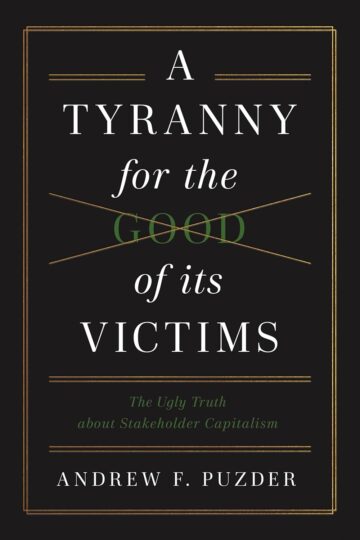Over the last 35 years, asset manager mega-giants BlackRock, State Street, and Vanguard have accumulated unprecedented levels of stock ownership in virtually every major U.S. company. Voting the shares they hold for clients allows these companies to force their own “environmental, social, and governance” or “ESG” agenda on the American corporate sector and, by extension, on all of us.
An asset manager’s traditional duty is to maximize returns for its investors, but these financial elites expand their duties through “stakeholder capitalism,” the idea that a company is responsible not only for its actual shareholders, but for everyone who is affected by the company—which translates to everyone in the community. Thus, they can impose their preferred ESG goals under the guise of benefitting an amorphous group of non-investors—a group that has no say over whether ESG goals actually “benefit” them.
This elite-dominated economic system is nothing more than socialism in sheep’s clothing. “ESG” defines the champagne socialist agenda that would devastate the working and middle classes globally. Now, in the face of rising opposition, these financial elites are suddenly rebranding—shifting their terminology to conceal their intent.
A Tyranny for the Good of its Victims exposes how, although they may abandon the acronym “ESG,” these elites have pursued—and will continue to pursue—their ESG goals: to transform our consumer-driven free-market economy into one that is subject to their elitist demands, overriding the will of the people whom they deem incapable of self-government.
About the author
Andrew F. Puzder, JD ’78, is an author, speaker, political commentator, attorney, and retired chief executive officer. For 17 years he served as the CEO of CKE Restaurants, Inc., an international corporation that owns popular restaurant chains Carl’s Jr. and Hardee’s. Puzder became CEO in 2000 and led the company out of serious financial difficulties.
Puzder is a distinguished fellow at the Heritage Foundation and a senior fellow at Pepperdine University’s School of Public Policy and the America First Policy Institute. He is also a member of the Reagan Institute’s National Leadership Council and a Reaganomics lecturer. He is a member of the School of Law’s National Council.
